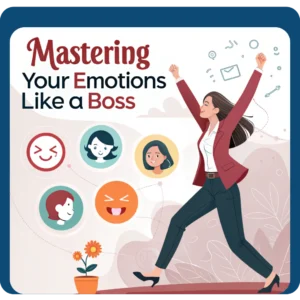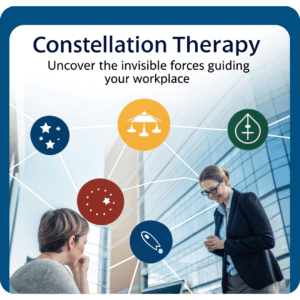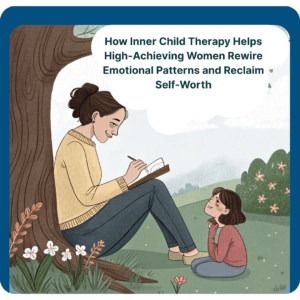Is it bad to be Judgemental?
Most of the people don’t realise they are being judgemental and how it deeply affects their lives. What makes a person judgemental? Anyone having a fixed mindset about another person or situation is called a judgemental person. Even when it is constructive criticism, the person doing it is being judgemental. Others who think they are far from judging others are usually suppressing their opinions or judging themselves to be not good enough to have a point of view. In all, judgements affect us deeply. It has more repercussions than generally understood. Here are a few insights on how judgements affect our lives, living and reality.
Why do we judge others?
Judgement is something that we all experience from time to time. Whether it’s our reaction to another person’s actions or how we perceive them, some people define it as having “harsh opinions or ideas.” These judgments are sometimes based on personal experiences or our own failures.
We spot what we got. When we judge others based on our emotions, or our own failures, we often project onto others the very qualities we hold most repugnant about ourselves. In many cases, the things we say about others reflect how we feel about ourselves. In reality, we don’t like facing our shadow self. One of the best defences against it is to project it onto others before they can see it.
Why do I need to know if I am being judgemental?
When we’re not aware of our judgmental nature, we get angry, anxious, rude, bashful, furious and lonely. Not only do we shut ourselves off from others, but we also shut ourselves off from our true selves.
Judgements also create limitations. You fail to see the truth and possibilities beyond your limited point of view. You block your own growth, potential and receiving by being judgemental. For instance, if there were five investors ready to support your business and judged three of them to be inadequate or bad, you have already limited your financial flow to two investors.
When we judge something to be bad, it can only show up as that. You won’t be able to see it as anything else or allow it to be anything else. This is the risk of being judgemental. You would hold on to your perception to prove your judgements to be right rather than having the freedom to change it.
How do I know if I am being judgemental?
Here are a few signs of a judgemental person. You have trouble with uncertainty and ambiguity. You think that everybody is trying to harm you. You find it difficult to look past someone’s imperfections. You are quick to draw conclusions. It is more important for you to be right than to be free. You see people as white or black. There is no room for a middle ground. Your first approach towards a situation is negative. You anticipate constant consistency from other individuals. Most importantly, you criticise yourself more harshly than others. If you can relate to any of these or get triggered while reading it, being judgemental is likely to be an issue for you.
How do I stop being Judgemental?
Acknowledge: We enjoy passing judgement on others. And almost always, we do it without fully understanding the person we are judging. We enjoy it because it emphasises our biases. Unless we identify and acknowledge that we are choosing to be judgemental, it will be difficult to change it. Acknowledge without judging yourself is the first step to stop being judgmental.
Be compassionate, patient, and empathetic: This requires giving the person or situation a space for being themselves without being judged. It allows the person to be vulnerable and honest. Surprisingly, when you are compassionate towards others, they tend to either back off or change to become more understanding and amiable.
Allowance: As you already know, people behave the way they do because they choose to do it. There is no reason or logic to it. If a person is choosing to judge you, allow them instead of fighting it or avoiding it. Both are an energy drain on you. When you allow yourself to be judged, the game is dropped. People won’t challenge or fight you. Allowance also gives you more lightness and expansion not to judge others.
Hope these insights give you an understanding of the repercussions of being judgemental and an idea on how to deal with judgemental people.
Everyone has a story.
Walk our path,
Live our life,
Then maybe you won’t feel the need to judge
By Sonali Mittra and Navita Sharma
(Sonali is a therapist and researcher. Navita is an access bars practitioner, dietitian, and nutritionist)
It means forming opinions about others quickly, often without full understanding, and usually in a negative way.
Often from fear, insecurity, personal failures, or trying to protect themselves by judging others.
It increases stress, anxiety, lowers self‐esteem, causes constant inner criticism and makes you feel disconnected.
Yes. When you judge, you limit your view, ignore possibilities, and stop learning from others.
If you're quick to conclude, critical of others’ small flaws, often feel superior, or avoid seeing others’ perspective.
Yes. With awareness, empathy, challenging your biases, and being kinder to yourself and others.
Mindful awareness, reframing thoughts, active listening, pausing before reacting, practicing compassion.
Definitely. It can cause misunderstanding, distance, hurt feelings, break trust and connection.
A little judgment can help with safety and decision-making (like knowing who to trust), but when it becomes constant and negative, it causes harm.
Judging is often neutral or based on facts and necessary for choices. Being judgemental implies bias, harsh criticism, fixed opinions, and lack of openness.





This blog on Is It Bad to Be Judgmental? really made me pause and reflect on my own thought patterns. I never realized how much judgment is tied to our own fears and projections! The strategies shared here to shift toward self-awareness and empathy are so valuable. Definitely something I’ll be practicing more consciously.
I love how this blog on Is It Bad to Be Judgmental? doesn’t just label judgment as ‘good’ or ‘bad’ but actually explores why we do it. It’s a powerful reminder that judgment often comes from our own insecurities or past conditioning. Learning to shift from judgment to curiosity has been a game-changer for me!
This was such an eye-opening read on Is It Bad to Be Judgmental? It really made me reflect on how often we judge others (and even ourselves) without realizing it. The part about understanding the root of our judgments really resonated with me—awareness is truly the first step to change!
This was such an insightful read! I’ve often wondered, ‘Is it bad to be judgmental?’ and your perspective really made me reflect on my own thought patterns. I love how you broke down the reasons behind judgment and provided actionable steps to shift our mindset.
This article on emotional resilience is such an insightful read! It’s incredible how resilience isn’t just about bouncing back but also about adapting and growing through challenges. The part about asking the right questions really resonated with me—I’ve seen firsthand how self-reflection can shift perspectives in difficult times.
This was such an insightful read! I’ve always wondered if being judgmental is inherently bad or if it has some value in certain situations. Your perspective really made me reflect on my own tendencies and how they impact my relationships. Loved the way you broke it down—definitely bookmarking this!
The connection between being judgemental and self-criticism was eye-opening. It’s true that harsh judgments of others often mirror how we treat ourselves. This article encourages a more empathetic approach to both self and others.
I appreciated the actionable steps provided to become less judgemental. Acknowledging our biases and practicing compassion are so important. This piece offers valuable insights for anyone looking to foster better relationships and personal well-being.
Reading this was a wake-up call. I often find myself making quick judgments without understanding the full picture. The idea that judgments can block our own potential is profound. I’ll be more mindful moving forward.
This article really made me reflect on my own tendencies. I never realized how being judgemental could limit not just my relationships but also my personal growth. The part about projecting our own insecurities onto others hit home. Thank you for shedding light on this!
Beautifully written! Being judgemental is often misunderstood, but you explained the emotional layers behind it so well. I feel more empowered to examine my inner critic now.
I love how you turned the concept of being judgemental into a growth opportunity. It’s not something to suppress but to explore with compassion. This really shifted my mindset.
Wow, this article gave me so much clarity. I’ve been ashamed of my judgemental thoughts for years. Now I realize they can be an invitation to self-reflection instead of guilt.
I really appreciated how you unpacked the difference between harmful judgement and intuitive discernment. Being judgemental isn’t always wrong—it’s how we relate to it that matters.
This was such a refreshing read! I’ve always wondered if being judgemental makes me a bad person, but now I see it as a mirror for my own unhealed parts. Thank you for this perspective.
This article really made me reflect—‘Is it bad to be judgemental?’ isn’t just a question, it’s an invitation to look deeper into our emotional responses. Loved how you explored both sides without making it black and white. Insightful read!
This blog really made me reflect on my own habits. I used to think being judgemental was just part of human nature, but now I see how much it limits connection and compassion. Thank you for this eye-opener!
This article on being judgmental was a real eye‑opener. I hadn’t realized how much it can color my day-to-day interactions until now. Your tips on pausing and asking “why am I thinking this?” are simple yet powerful. I’m going to adopt that habit and see how it transforms my perspective. Such a helpful read—thank you!
I really appreciated this deep dive into being judgmental—you’ve highlighted how easy it is to fall into that mindset without even noticing. The examples about how it strains relationships and limits personal growth hit home for me. I’m inspired to start catching my own judgments in the moment and practicing more empathy. Thanks for the gentle reminder!
This article gave me permission to pause before reacting. Now I realize being judgemental blocks openness—not just with others but with myself. The actionable tips on pausing before the judgment really resonated.
Reading this changed my perspective—being judgemental used to feel shameful, but now I understand it as a mirror into my own insecurities. This article invites curiosity rather than guilt, and that shift is powerful.
I found this post deeply validating—especially the distinction you made between harmful judging and intuitive discernment. It helped me see that being judgemental isn’t inherently wrong, but how I relate to that judgment matters. Thank you for bringing such clarity.
Thank you for such a nuanced take on being judgemental. It’s so easy to lump judgment into ‘bad’ and move on—this piece helped me realize that judgment is often pointing toward deeper unmet needs in ourselves. Your insights offer a gentle path to compassion, both inward and outward.
This article beautifully addresses how being judgemental is often a defense mechanism. I connected deeply with the section on how making assumptions about others can gloss over our own unresolved fears. It motivates me to pause and ask: what inner belief is actually being triggered?
I loved the way this piece reframes judgment not as failure, but as an invitation to self‑reflection. Recognizing my own vulnerability before reacting—it’s such a simple, yet profound shift. It’s made me wonder: when we call others ‘judgemental,’ are we often mirroring parts of ourselves that need healing?
What a powerful article! The distinction you drew between noticing and judging really shifted my perspective. It’s one thing to observe triggers, but when judgment sneaks in, it creates inner separation. I’m now more aware of how being judgemental impacts my relationships and inner peace. Thank you for this eye‑opening insight.
This piece on being judgemental really resonated with me. I never realized how judgement often reveals our own insecurities and inner shadows. Your insights about acknowledging judgment without self-criticism and choosing empathy instead of reaction were truly eye-opening. I’m going to practice pausing and asking myself, ‘What am I projecting here?’ — thank you for this gentle, transformative reminder.
This article on Is it Bad to Be Judgemental? really struck a chord with me. I often catch myself being judgemental without realizing why, and your explanation about projection and bias opened my eyes. The suggestions to pause, allow, and show compassion feel doable and powerful. Thank you for writing something so grounded and healing
appreciate how you explain that judgement often comes from our own fears. I’m trying to be less judgemental and more empathetic — this piece is very motivating.
I catch myself being judgemental especially on stressful days. This post is a nice reminder that being aware of it is the first step to change
This made me think about how being judgemental has affected my friendships. I need to practice patience and understanding instead of jumping to conclusions
I always thought I was ‘just honest,’ but this made me see how often honesty crosses into being judgemental. Definitely something to be mindful of
This article was like a mirror. I recognized so many moments where being judgemental hurt my connections. Grateful for this insight.
I tend to judge others when I’m stressed or insecure. This post reminded me to pause and breathe before forming opinions. Very relatable
I realized that being judgemental has cost me opportunities in life and relationships. Learning to replace it with understanding is such an important step
It’s not easy to admit when you’re being judgemental, but this article made me reflect on my behavior without feeling guilty. Very practical and human advice.
I remember judging a stranger in the park today because of their clothes. Reading this made me reflect on how being judgemental doesn’t serve anyone, especially myself.
This post really made me pause and reflect on how being judgemental shows up in my life. I loved how you pointed out that our judgments often mirror our own fears and unopened wounds. The suggestions on acknowledging judgement without beating ourselves up were powerful—I’m going to try that this week. Thank you for shedding so much light on a topic that’s often brushed aside.
Thank you for this thoughtful piece on being judgemental. I found your exploration of why we judge—and how it affects both us and others—really eye-opening. The practical suggestions for shifting from judgement to curiosity are especially helpful. It’s so easy to slip into a habit of being judgemental without even realizing it, and your article makes a strong case for why we should pay attention. Looking forward to more posts like this
During a family dinner, I noticed how quickly I was being judgemental about someone’s habits. It made me realize how often I do this without noticing
I was talking to a friend and found myself silently being judgemental about their choices. This post made me stop and think maybe I need to listen more than judge
I caught myself being judgemental while scrolling through social media last night. Your article reminded me that I don’t know people’s full stories, and that compassion matters more
“Yesterday, I realized I was being judgemental with a coworker just because they work differently. Reading this made me step back and try understanding their perspective instead
I liked how you explained that judgemental attitudes block growth and possibilities. The example of rejecting potential investors based on a snap judgement really made me reflect on opportunities I may have overlooked in life and relationships
Great exploration of what it truly means to be judgemental. I especially appreciated how you explained the hidden impact our judgments have on our mindset and potential. Very practical and introspective
This article helped me realize how often I slip into being judgemental without thinking. The section on self-reflection really hit home — thank you for such thoughtful insight!
This topic Is it bad to be judgemental is so relevant today! We all judge, but awareness makes the difference. Thanks for encouraging thoughtful self-reflection and compassion
Really insightful post — I never realised how much judgement limits how I see others.
This piece helped me reflect on my behaviour. I’m learning to pause before judging now.
I’ve been thinking about this article all day. I agree that being judgemental stops real connection. Great read
This article gave me new insight into how judgment works and how to transform it into curiosity and understanding.
The way this post reframes judgment from “bad” to “understandable but improvable” is so refreshing. Makes growth feel possible!
I enjoyed this read! It encourages mindfulness and compassionate observation rather than quick conclusions.
Such a gentle reminder that judgment often tells us more about ourselves than others. This article offered real clarity.
This was a grounding explanation of something we all experience. I especially liked how it encourages us to pause before reacting.
This was a grounding explanation of something we all experience. I especially liked how it encourages us to pause before reacting.